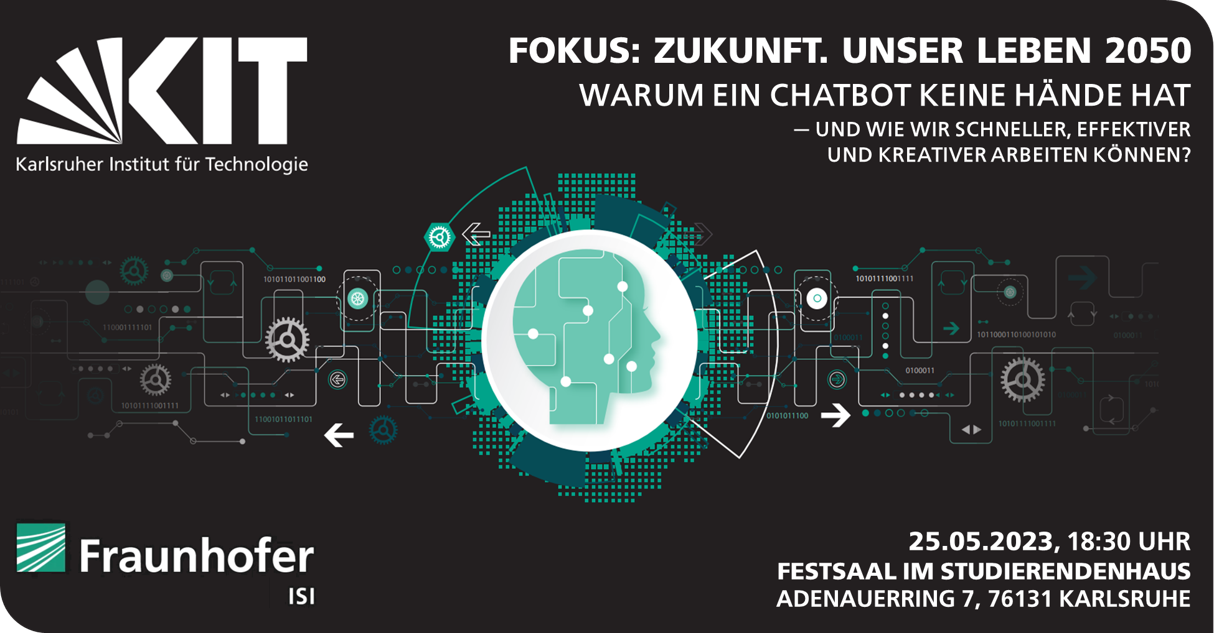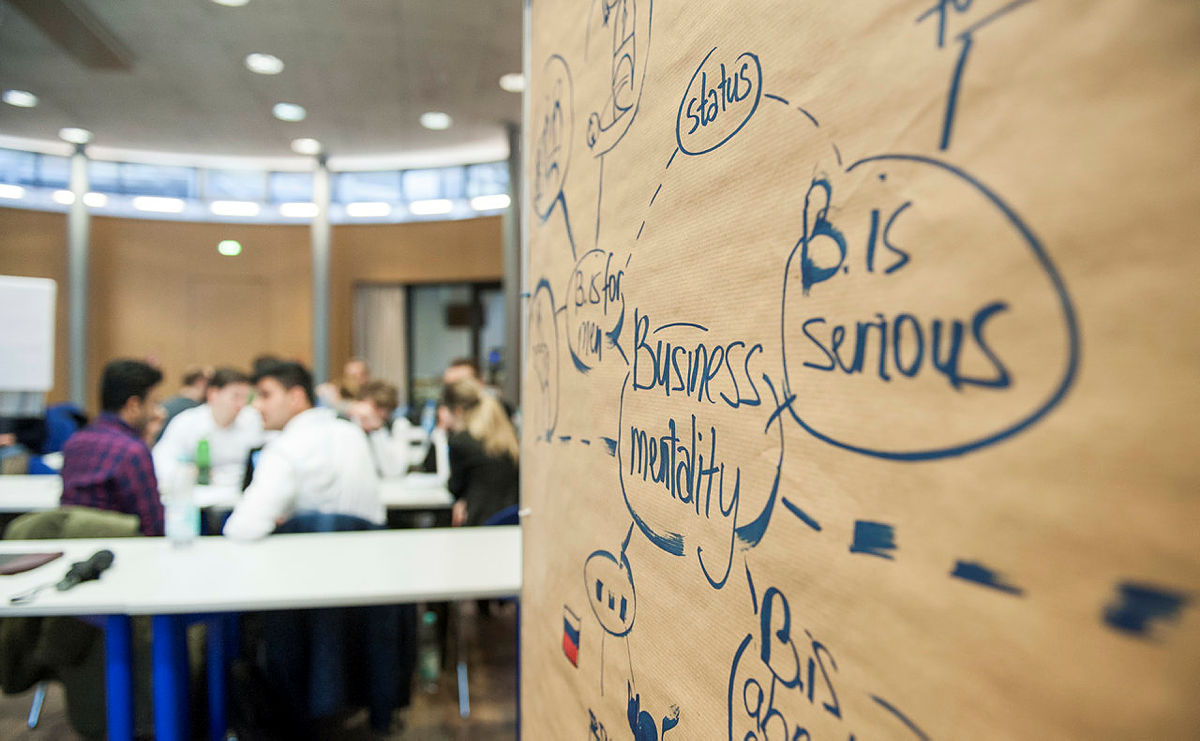Why a chat bot has no hands - and how we can work faster, more effectively and more creatively?
On May 25, 2023, the Chair of Innovation and Technology Management (iTM) and the Fraunhofer Institute for Systems and Innovation Research(Fraunhofer ISI) will host the lecture and discussion round"Why a chat bot has no hands - and how we can work faster, more effectively and more creatively?" in the series "Focus: Future. Our Life 2050."
The chat bot ChatGPT, which is based on machine learning, has made high waves in recent weeks. ChatGPT is capable, for example, of making recommendations for action, program codes or texts ranging from poems to summaries of scientific publications. Even those areas of knowledge work that had previously viewed digital technologies more as a help than as competition for their own jobs feel both challenged and unsettled by the new artificial intelligence. These fears must be taken seriously. At the same time, important human competencies will have to be defined and continuously trained in the future. For the time being, skills in the areas of creativity, problem solving, future orientation and critical reflection will probably be left exclusively to humans. Science shows that motor movements have a stimulating effect on the brain. Researchers at the University of Würzburg have also discovered that movement - or more specifically, the freedom to make self-determined movements - helps us to think more flexibly and creatively. If we humans rely entirely on AI, aren't we risking the last genuinely human ability?
Until recently, the prevailing tenor was that manual tasks would be replaced by digital technologies such as assistive robotics. The Corona pandemic and the shortage of skilled workers have made it clear, however, that craftsmanship and nursing in particular cannot be replaced, at least for the time being. At the same time, the conditions and incentives to work in these professions tend to be less attractive, putting important social functions at risk.
How are the two developments to be reconciled? What might the future of knowledge work and manual work look like in the context of technological developments, especially AI? What roles do innovations and technologies play? How are learning and teaching changing and what new business models do these developments entail? In the wake of the above question, what are necessary future competencies?
We would like to discuss these and other questions in a dialog with experts from science, business and society and, if you like, with you.
Here you can find the radio report on the event.

The event will take place in the Festsaal in the Studierendenhaus of KIT (Adenauerring 7, 76131 Karlsruhe) and will start at 6:30 p.m. Admission is free.
